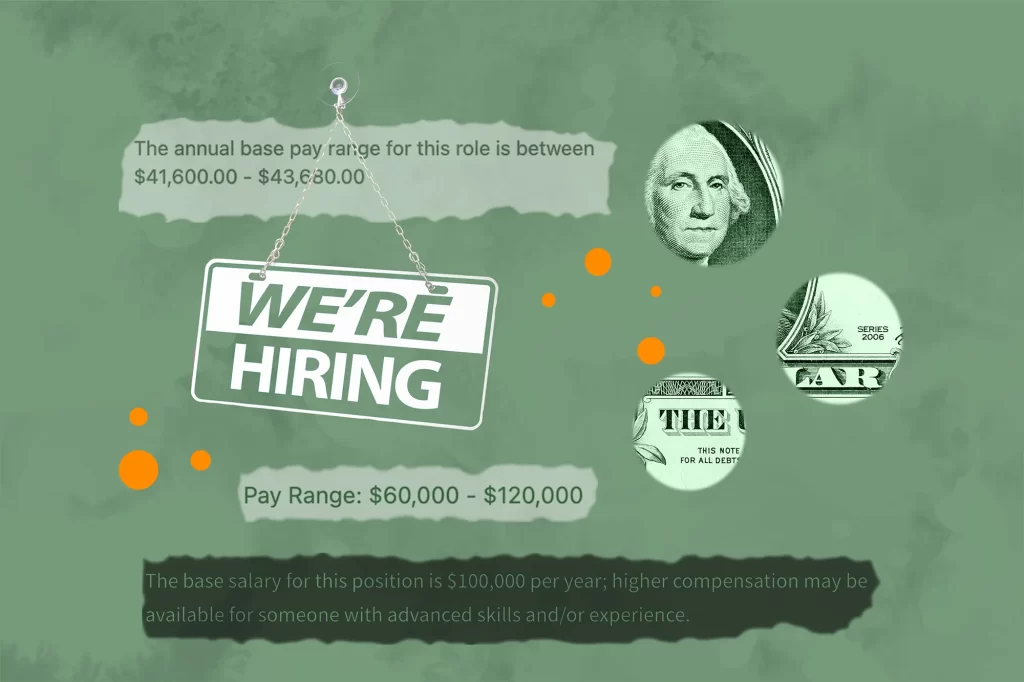the latest
Raising the Standard for Salary Transparency in GovCon: Why It Matters for Both Candidates and Companies

Imagine missing valuable time with your family, neglecting activities you enjoy, or falling behind at work because a company wasn’t upfront about how much they could pay for an open position. You likely spent at least an hour speaking with a recruiter, another 30 minutes tailoring your resume, and a minimum of an hour preparing for and attending an interview. On top of that, there were all the countless other tasks between the recruiter’s initial call and the offer letter.
All of this effort, only to be lowballed or basically have your salary expectations ignored. And when you question the offer, you’re told that the range was—let’s say $100,000 to $200,000—and that your experience, education, etc determined you fell at the lower end of the range. This situation is all too common in GovCon, and it’s time we raise the standard for transparency.
To begin with, both the company and the candidate should discuss salary and benefits early in the process—right after the introductory pleasantries. There’s no point in diving into the rest of the conversation before agreeing on compensation expectations. Who should bring up the number first? That’s a topic for another day, but personally, I believe the company should. By understanding each other’s salary expectations early on, both sides can quickly determine if it’s worth continuing the conversation. Just as candidates invest time in calls with recruiters, resume tailoring, interview prep, and interviews, recruiters also invest time submitting resumes, scheduling interviews, and handling other tasks. Both sides can save valuable time by being transparent about compensation upfront.
Transparency also helps prevent disappointment and maintains a company’s reputation. If a candidate receives an offer lower than expected, they’re understandably upset. They’ve put in time and energy because they were excited about the role, and to feel like their salary expectations were disregarded can leave a negative impression that affects the company’s reputation. A disgruntled candidate might share their experience with others, which can impact future hiring efforts.
The same holds true from the company’s perspective. Hiring managers and program managers may have been eager to bring a candidate on board, only to find the deal falls apart because their salary expectations don’t align.
Getting this part right is surprisingly simple. For most positions, a company already knows how much they can afford to pay. With a bill rate and a bit of math (factoring in wrap rates and profit margins), a company can easily determine what their total compensation package will be. For companies without a bill rate, such as those on Firm Fixed Price contracts, the hiring manager should still know how much of the budget can be allocated to a position. For subcontractors without established rates with their prime, it’s still possible to a target bill rate, conduct market research, or simply bid a bill rate that covers the candidate’s salary expectations. There’s no reason why salary discussions shouldn’t happen early in the process.
Additionally, don’t fall into the trap of using experience-based pay differences when employees of similar experience levels fall under the same Labor Category. For example, if someone with 4 years of experience is in the same labor category as someone with 6 years, they should be paid the same. Clear expectations set early on reduce wasted time and create enthusiasm on both sides. That enthusiasm leads to quicker decisions, higher candidate acceptance rates, and stronger reputations for companies that prioritize transparency. And in the tight-knit GovCon community, reputation matters. Don’t let a higher profit margin stand in the way of growth. Even if a candidate accepts an offer below their expectations, they’ll soon learn what their colleagues are making and may leave for a better-paying opportunity. The additional profit you might make from underpaying them is less valuable than the cost of replacing that person down the road.
To be honest, most large companies probably won’t change anytime soon. While they might post a range (often because it’s required by law in some states), these ranges are often absurdly wide—like $100,000 to $200,000. The reality is, everyone hopes for the top end of the range and is disappointed when they’re offered the bottom. Large companies often rely on the prestige of their name or the job security they offer to encourage candidates to accept lower offers. They may also count on the fact that, if you don’t accept, there are plenty of other candidates willing to take the offer. While large companies should be pushed to improve, don’t hold your breath waiting for change—especially if you don’t bring a rare, niche skill set.
For smaller companies, however, getting this right can lead to rapid growth. Employees in smaller firms often wear multiple hats, so efficiency is crucial. Don’t make the salary negotiation process more difficult than it needs to be. Transparency, whether the news is positive or negative, will be appreciated by candidates and will set the right tone from the beginning of the relationship.
So, what are your thoughts? Have you ever found yourself wasting time due to salary misalignment? Share your experiences from both the candidate and company perspectives.
Disclaimer: We understand that not all positions will meet the standard of transparency mentioned above. Each role and company has unique circumstances, and there may be valid reasons for offers coming in lower than expected. However, we believe that in most cases, setting clear expectations early can save time, prevent misunderstandings, and lead to a more efficient and positive hiring process for both parties.